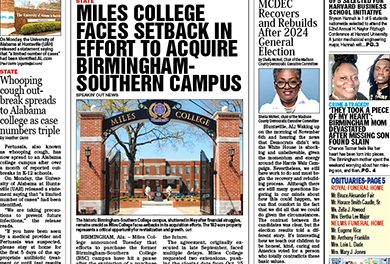Background Scripture: Hebrews 6:9-20
Lesson Context: The book of Hebrews is unique in the collection of New Testament letters in that the author’s name is never stated. Throughout the centuries, scholars have speculated that the writer could have been Barnabas, Silas, Apollos, Luke, Paul, or Priscilla. In the book of Hebrews, there are five passages of warning. Each warning section includes a call to salvation and a vivid description of the consequences if God’s way is rejected. Today’s text includes part of the third warning.
l. Promise Made (Hebrews 6:9-12):
A. Declaration (v. 9). “But, beloved, we are persuaded better things of you, and things that accompany salvation, though we thus speak.” Though he spoke so severely, the writer to the Hebrews was confident His readers would continue on with Jesus. He thinks of their continuation in the faith as one of the things that accompany salvation. Though we speak in this manner. These encouraging words after the strong warning of Hebrews 6:4-8 should not be understood to mean that the warnings in the previous verses are not serious, or that the writer warned of impossible consequences. If anything, verse nine shows how badly these struggling Christians needed encouragement. Their spiritual danger was not so much out of a calculated rebellion, but more because of a depressing discouragement. They need warning, but also needed encouragement.
B. Source (v. 10a). “For God is not unrighteous to forget.” When we are discouraged we sometimes think God forgets us and all we have done for Him and for His people. But God would deny His own nature if He forgot such things (He would be unjust). God sees and remembers.
C. Basis (vv. 10b-12). “Your work and labour of love, which ye have shewed toward his name, in that ye have ministered to the saints, and do minister.”
Sometimes our fear that God forgot our work and labor of love comes from relying on the attention and applause of people. It is that some people may forget your work and labor of love, but God will never.
11. “And we desire that every one of you do shew the same diligence to the full assurance of hope unto the end.” The writer to the Hebrews encouraged like a coach, urging believers to press on. The followers of Jesus must keep up their good work, press on with that hope until the end, and imitate those who inherit (not earn) God’s promises. When we fail to do this, discouragement often makes us become sluggish.
12. “That ye be not slothful, but followers of them who through faith and patience inherit the promises.” The idea is that we should not let discouragement make us sluggish, leading to the sense that we may as well give up. First we lose the desire to press on, then we lose the desire to go on. Instead of giving in to discouragement, imitate those who found the key to gaining God’s promises-faith and patience, as demonstrated by Abraham.
ll. Promise Fulfilled (Hebrews 6:13-20):
A. By God’s Greatness (vv. 13-15) 13. “For when God made a promise to Abraham, because he could swear by no greater, he sware by himself.”
God came through for Abraham, even sealing His promise with an oath. In fact, because He could swear by no one greater, He swore by Himself. This oath showed that God’s promises (like His character) are unchanging. Abraham’s trust in this was the gateway to the fulfillment of the promise.
14-15. “Saying, Surely blessing I will bless thee, and multiplying I will multiply thee. And so, after he had patiently endured, he obtained the promise.” God came through for Abraham, even sealing His promise with an oath.
B. By God’s Faithfulness (vv. 16-20). 16. “For men verily swear by the greater: and as oath for confirmation is to them an end of all strife.” 17. “Wherein God, willing more abundantly to shew unto the heirs of promise the immutability of his counsel, confirmed it by an oath.”
18. “That by two immutable things, in which it was impossible for God to lie, we might have a strong consolation, who have fled for refuge to lay hold upon the hope set before us.” The two immutable (unchanging) things are God’s promise and God’s oath. It is impossible for God to lie in either of these two things. The absolute reliability of God’s promise should impress us.
References: International Sunday School Lessons, KJV 2023-2024, David E. Guzik’s Bible Commentary











